★★★
“Russian off to war…”
 This is an adaptation of a Russian play A Long Time Ago by Alexander Gladkov, but was inspired by the real-life exploits of Nadezhda Durova. She was a woman who basically pulled a Mulan, concealing her gender in order to defend her homeland in the Napoleonic and other wars of the early 19th century. Durova joined the army on her 23rd birthday and served honourably for a decade, even after her true gender was discovered. Tsar Alexander I was impressed when he heard about Durova, giving her a promotion after summoning the soldier to his palace in St. Petersburg. Wounded by a cannonball at the Battle of Borodino, she eventually retired in 1816, with the rank equivalent to captain-lieutenant.
This is an adaptation of a Russian play A Long Time Ago by Alexander Gladkov, but was inspired by the real-life exploits of Nadezhda Durova. She was a woman who basically pulled a Mulan, concealing her gender in order to defend her homeland in the Napoleonic and other wars of the early 19th century. Durova joined the army on her 23rd birthday and served honourably for a decade, even after her true gender was discovered. Tsar Alexander I was impressed when he heard about Durova, giving her a promotion after summoning the soldier to his palace in St. Petersburg. Wounded by a cannonball at the Battle of Borodino, she eventually retired in 1816, with the rank equivalent to captain-lieutenant.
Somehow this became a light and fluffy slice of musical rom-com. 17-year-old Shura Azarova (Golubkina) is an accomplished rider and tomboy, who meets Hussar officer Dmitry Rzhevsky (Yakovlev), and is mistaken by him as a brother in arms. [As usual in these things, significant suspension of disbelief is required!] When war with France breaks out, Rzhevsky returns to his unit and Shura convinces faithful family retainer Ivan (Kryuchkov) to help her join the army in disguise. She makes a name for herself as a skilled and brave courier, though her relationship with Dmitry is more adversarial than romantic. There’s a French actress on whom he has designs, triggering her jealousy. Mistaken as rivalry, Dmitry and Shura end up having a duel, though the war keeps interfering in its execution.
All is forgiven after Shura is captured on a spying mission, Dmitry leading his platoon to the rescue, and leading to a rather decent extended fight, running through a ransacked stately home. [While the actual swordplay is no great shakes in general, the other stunts aren’t bad, including Shura leaping down off a balcony, which looks to have been done by the actress herself] The sudden moments where people burst into song are a little jarring initially, yet I got used to them – probably, again, a point of comparison to Mulan. The production is quite large in scale: there’s an opening ball sequence that’s impressive, and the battle scenes aren’t bad, albeit not quite War and Peace [though some of the costumes from it were recycled here!]
There is the obvious, and given the era probably entirely expected, patriotic theme, with discussions about defending the motherland. The film’s premiere took place on the 150th anniversary, to the day, of the previously-mentioned Battle of Borodino, a famous and bloody encounter between Russia and Napoleon’s forces – best known for inspiring the 1812 Overture by Tchaikovsky. However, it’s rarely heavy-handed, and for all its fluffiness, lack of substance and shortcomings in the motivation department, you do find yourself rooting for Shura. To be honest, perhaps to a greater degree than Dmitry, who comes off as a bit of an arrogant dick. Likely more genuinely progressive than anything coming out of Hollywood around the same time.
Dir: Eldar Ryazanov
Star: Larisa Golubkina, Yuriy Yakovlev, Igor Ilyinsky, Nikolay Kryuchkov





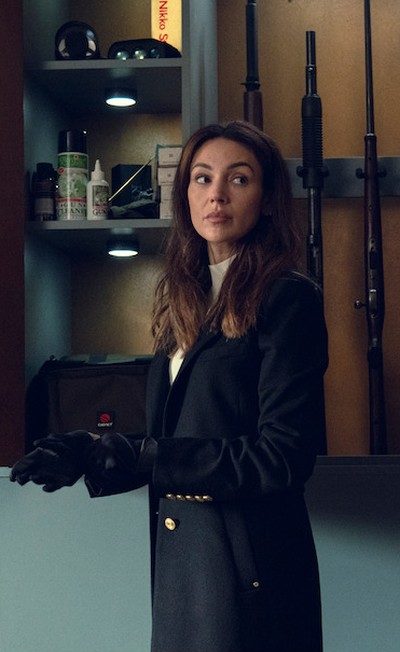 Maya Stern (Keegan) is having a rough patch. A former helicopter pilot in the military, she was sent home and discharged under murky circumstances. While she was away, her sister was killed in what looks like a botched burglary, and not long after her return, husband Joe is also shot and killed in front of Maya, when they are walking in the park. But is everything what it seems? Because when checking the nanny-cam monitoring her young daughter, Maya sees a shocking site: her supposedly dead husband visiting the house. This kicks Maya into an unrelenting search for the truth, which will send her down a rabbit-hole and uncover a lot of sordid secrets, dating back decades.
Maya Stern (Keegan) is having a rough patch. A former helicopter pilot in the military, she was sent home and discharged under murky circumstances. While she was away, her sister was killed in what looks like a botched burglary, and not long after her return, husband Joe is also shot and killed in front of Maya, when they are walking in the park. But is everything what it seems? Because when checking the nanny-cam monitoring her young daughter, Maya sees a shocking site: her supposedly dead husband visiting the house. This kicks Maya into an unrelenting search for the truth, which will send her down a rabbit-hole and uncover a lot of sordid secrets, dating back decades.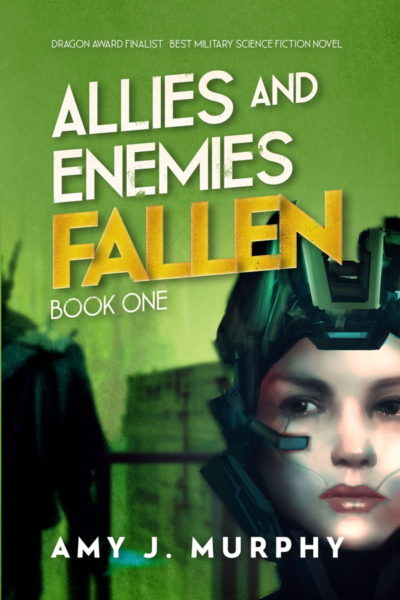 It’s a little hard to explain the universe in which this takes place. Humanity existed. However, their encounter with other races proved problematic for a variety of reasons, and led to them being exterminated, a genocide that was partly collateral damage in a war between the human-adjacent Eugenes and the definitely not Sceeloids. The former have a severely class-based society, where the lower-tiers are bred specifically to be soldiers, for example. One such “breeder” is Sela “Ty” Tyron, though she differs from the rest of her platoon in a couple of important ways. Firstly, her son is part of her group – though he doesn’t know it, having been removed from her care on his birth. His death (at the very beginning of the book, so not much of a spoiler) causes Ty to question everything she has believed about society, and her place in it.
It’s a little hard to explain the universe in which this takes place. Humanity existed. However, their encounter with other races proved problematic for a variety of reasons, and led to them being exterminated, a genocide that was partly collateral damage in a war between the human-adjacent Eugenes and the definitely not Sceeloids. The former have a severely class-based society, where the lower-tiers are bred specifically to be soldiers, for example. One such “breeder” is Sela “Ty” Tyron, though she differs from the rest of her platoon in a couple of important ways. Firstly, her son is part of her group – though he doesn’t know it, having been removed from her care on his birth. His death (at the very beginning of the book, so not much of a spoiler) causes Ty to question everything she has believed about society, and her place in it. As we head towards the 2024 election, I’m forced to conclude that the most implausible element here is not terrorists hijacking Air Force One, or a lone Secret Service agent taking out scores of bad guys. No, it’s having a President under fifty: someone who can string coherent sentences together, parachute out of a plane without breaking his hips, and personally gun down an enemy or two as well. Yeah, that’s not happening anytime soon. Otherwise, this teeters on the edge of being as generic as its title. But it passes muster due to decent performances, especially from McNamara as agent Allison Miles, and well-managed action from Bamford, who has 30+ years experience in stunt work.
As we head towards the 2024 election, I’m forced to conclude that the most implausible element here is not terrorists hijacking Air Force One, or a lone Secret Service agent taking out scores of bad guys. No, it’s having a President under fifty: someone who can string coherent sentences together, parachute out of a plane without breaking his hips, and personally gun down an enemy or two as well. Yeah, that’s not happening anytime soon. Otherwise, this teeters on the edge of being as generic as its title. But it passes muster due to decent performances, especially from McNamara as agent Allison Miles, and well-managed action from Bamford, who has 30+ years experience in stunt work. For the first hour, you may be forgiven for wondering if there has been some kind of mistake, because the poster bears almost no resemblance to what happens in the film. Oh, it’s the same actress, to be sure, and she is a schoolgirl. But it appears, rather than the war story promised, you have strayed into a teenage drama. In it, Ai (Seino) is a talented but troubled student, who seems to be suffering from some kind of post-traumatic stress disorder. The special treatment she receives at school brings her enmity as a result, both from her class-mates and the er homeroom teacher (Kaneko). Though she finds solace in art, including a mysterious major project on which she is working, housed in the school auditorium.
For the first hour, you may be forgiven for wondering if there has been some kind of mistake, because the poster bears almost no resemblance to what happens in the film. Oh, it’s the same actress, to be sure, and she is a schoolgirl. But it appears, rather than the war story promised, you have strayed into a teenage drama. In it, Ai (Seino) is a talented but troubled student, who seems to be suffering from some kind of post-traumatic stress disorder. The special treatment she receives at school brings her enmity as a result, both from her class-mates and the er homeroom teacher (Kaneko). Though she finds solace in art, including a mysterious major project on which she is working, housed in the school auditorium. It has been a very quiet year for big-budget action heroine movies so far. Here we are, more than one-third of the way through 2023, and this Netflix Original is likely the highest profile entry to date. There is a certain pedigree here, albeit of the direct-to-streaming variety, with director Caro having also helmed the (considerably more expensive)
It has been a very quiet year for big-budget action heroine movies so far. Here we are, more than one-third of the way through 2023, and this Netflix Original is likely the highest profile entry to date. There is a certain pedigree here, albeit of the direct-to-streaming variety, with director Caro having also helmed the (considerably more expensive)  I’m almost tempted to leave it at that, because there are points where it feels like writer Alex Wright left it at that as well. Heroine Michele (Gibson) gets down to her vest? Check. Takes a walkie-talkie off a bad guy? Check. At one point, she even lost a shoe. If she’d gone crawling through an air-duct, I’d have flipped a table. Anyway, Michele is a former military doctor, now working in a civilian hospital. Rushing in one day is an FBI agent with Ryan Quinn, son of an Irish crime family, who was shot in an ambush after agreeing to flip on his relatives. Not far behind is family boss Patrick (Voight) and Ryan’s brother, Sean (Meyers), the latter intent on finishing the job.
I’m almost tempted to leave it at that, because there are points where it feels like writer Alex Wright left it at that as well. Heroine Michele (Gibson) gets down to her vest? Check. Takes a walkie-talkie off a bad guy? Check. At one point, she even lost a shoe. If she’d gone crawling through an air-duct, I’d have flipped a table. Anyway, Michele is a former military doctor, now working in a civilian hospital. Rushing in one day is an FBI agent with Ryan Quinn, son of an Irish crime family, who was shot in an ambush after agreeing to flip on his relatives. Not far behind is family boss Patrick (Voight) and Ryan’s brother, Sean (Meyers), the latter intent on finishing the job.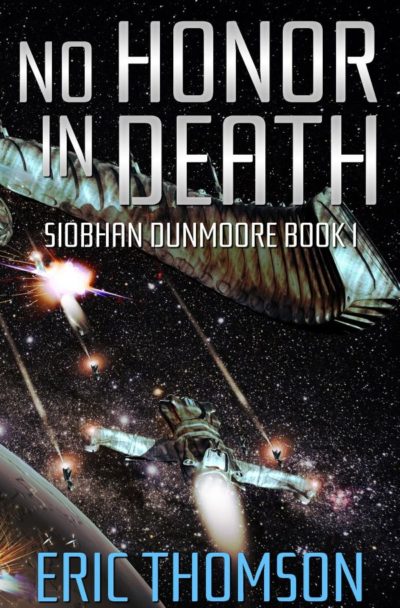 This SF novel takes place in the future where the human Commonwealth is engaged in a brutal space war against the militaristic Shrehari Empire – imagine Klingons on krack, perhaps. They have superior technology, but humanity’s ability to think outside the box and improvise has helped level the playing field. Siobhan Dunmoore has just survived – emphasis on “just” – a battle against the Imperial cruiser Tol Vakash of Captain Brakal, forcing him to retreat by attempting a kamikaze crash of her badly-damaged craft into his. As a “reward”, she is assigned command of the Stingray, a craft with a bad reputation. Its previous captain is now facing a Disciplinary Board, and the crew are barely even trying. It seems Dunmoore has been set up to fail, and she’ll need to overcome resistance from enemies both domestic and alien, as well as overt and covert, before she can even think about going another round with Captain Brakal.
This SF novel takes place in the future where the human Commonwealth is engaged in a brutal space war against the militaristic Shrehari Empire – imagine Klingons on krack, perhaps. They have superior technology, but humanity’s ability to think outside the box and improvise has helped level the playing field. Siobhan Dunmoore has just survived – emphasis on “just” – a battle against the Imperial cruiser Tol Vakash of Captain Brakal, forcing him to retreat by attempting a kamikaze crash of her badly-damaged craft into his. As a “reward”, she is assigned command of the Stingray, a craft with a bad reputation. Its previous captain is now facing a Disciplinary Board, and the crew are barely even trying. It seems Dunmoore has been set up to fail, and she’ll need to overcome resistance from enemies both domestic and alien, as well as overt and covert, before she can even think about going another round with Captain Brakal.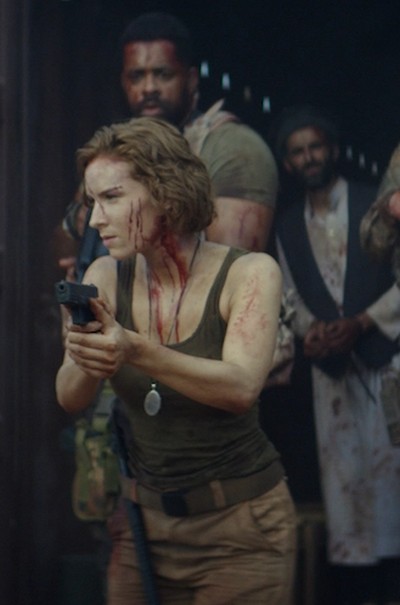 There is a tendency for directors married to actresses to make them action heroines. This perhaps started with Renny Harlin and Geena Davis, but the most famous example is probably Paul W.S. Anderson and Milla Jovovich (she was previously married to Luc Besson too). It seems that Marshall and Kirk may be heading that way, with her starring in his last two movies. First there was witch-pic The Reckoning, and now this, which blends elements from a number of genre films. Not the least of which are Marshall’s own Dog Soldiers and
There is a tendency for directors married to actresses to make them action heroines. This perhaps started with Renny Harlin and Geena Davis, but the most famous example is probably Paul W.S. Anderson and Milla Jovovich (she was previously married to Luc Besson too). It seems that Marshall and Kirk may be heading that way, with her starring in his last two movies. First there was witch-pic The Reckoning, and now this, which blends elements from a number of genre films. Not the least of which are Marshall’s own Dog Soldiers and 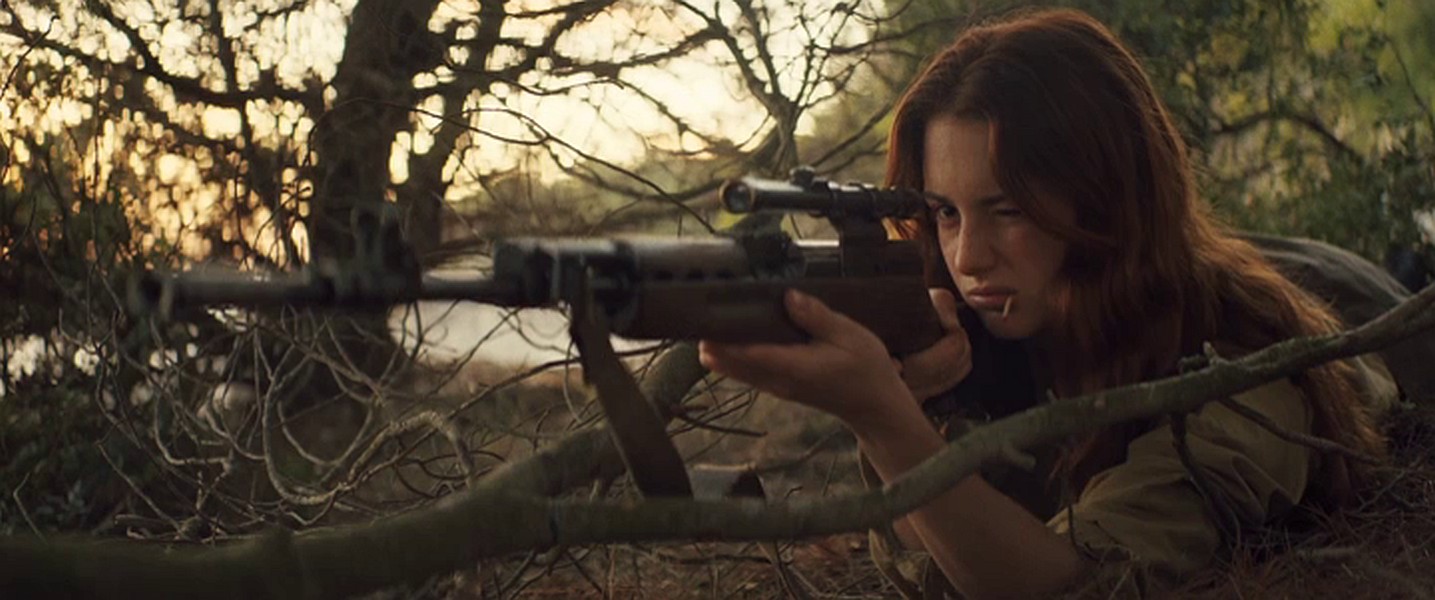 ★½
★½